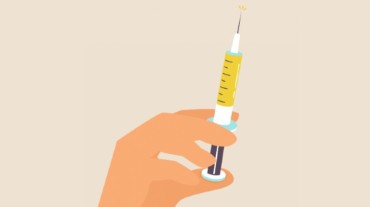
When it comes to viral infections of the reproductive tract, Human papillomavirus (HPV) is the most common culprit. In the majority of cases, this infection is acquired shortly after becoming sexually active. While HPV is sexually transmitted, penetrative sex is not a pre-requisite for transmission.
This infection is also a major cause of cervical cancer, and skin-to-skin genital contact is the predominant mode of transmission. However, there are vaccinations available to combat its transmission.
HPV infections are alarmingly prevalent amongst women, making cervical cancer the fourth most common cancer among women globally.

As per the World Health Organization (WHO), “Cervical cancer is caused by sexually acquired infection with certain types of HPV. Although most HPV infections clear up on their own and most pre-cancerous lesions resolve spontaneously, there is a risk for all women that HPV infection may become chronic and pre-cancerous lesions progress to invasive cervical cancer.”
Common symptoms include painful lesions and bumps, on hands, skin, and genitals.
Hence, the threat looms large, and this is where vaccinations can play a key role, to protect against HPV transmission.
From a preemptive strategy perspective, there is a growing contemplation these days on whether people 26 and above should opt for these vaccines as preventive measures. So, to get a better understanding, we spoke to Dr Uma Vaidyanathan who is a senior consultant in the obstetrics and gynaecology department at Fortis Hospital, Shalimar Bagh.

According to Dr Vaidyanathan, “This is still a grey area and definitely something that has caused controversy. At the same time, we must look at this vaccine as we look at other vaccines. You must have noticed that medical professionals concentrate on vaccinating children at a young age instead of waiting for them to become older. This is because antibodies develop faster in children and in fact, the memory of these antibodies is also believed to be longer. These factors play a big role in keeping a vaccinated individual protected against diseases.
On the other hand, this propensity goes down as one grows older. So, there may not be the development of as many antibodies in an adult. Hence, getting vaccinated may not give an adult as strong a protection as it gives to a child.
Another factor to keep in mind is that many people are sexually active by the age of 26. So, they may have been exposed to HPV already.”
Select Topics of your interest and let us customize your feed.
PERSONALISE NOWThe expert says, “While it may not provide very strong protection, it isn’t unsafe. In fact, HPV has many strains. If you’re already infected by one strain, you may gain protection against other strains.”
For such individuals, Dr Vaidyanathan suggests, “Regular checkups are important in such a case and otherwise, too! Getting pap smears annually may be of great help in monitoring the status of health.”
So, ladies, get vaccinated timely and speak to your doctor about it!